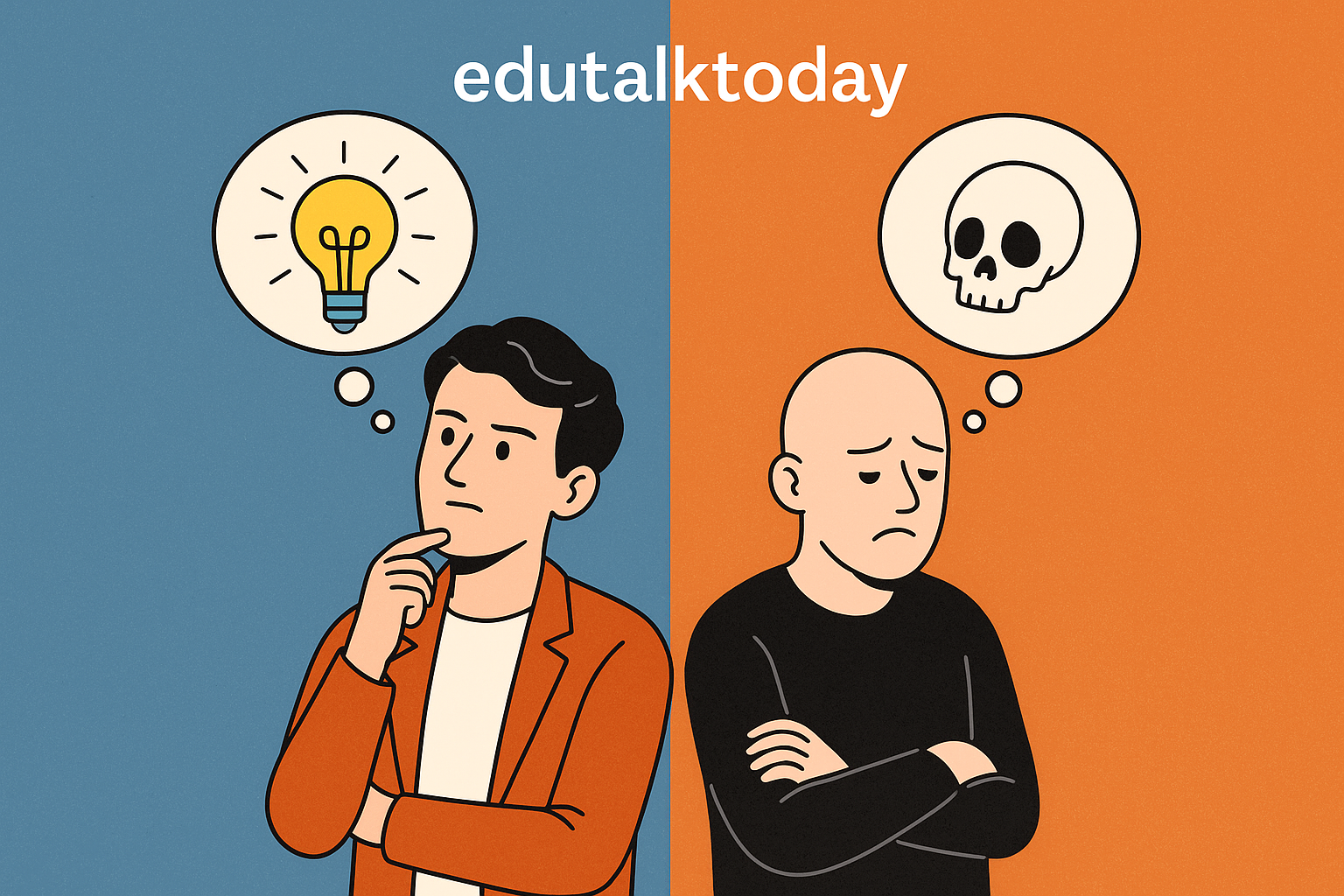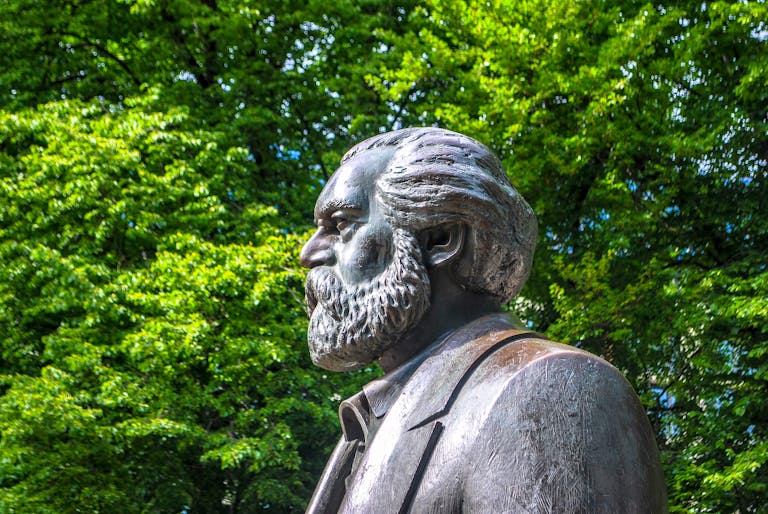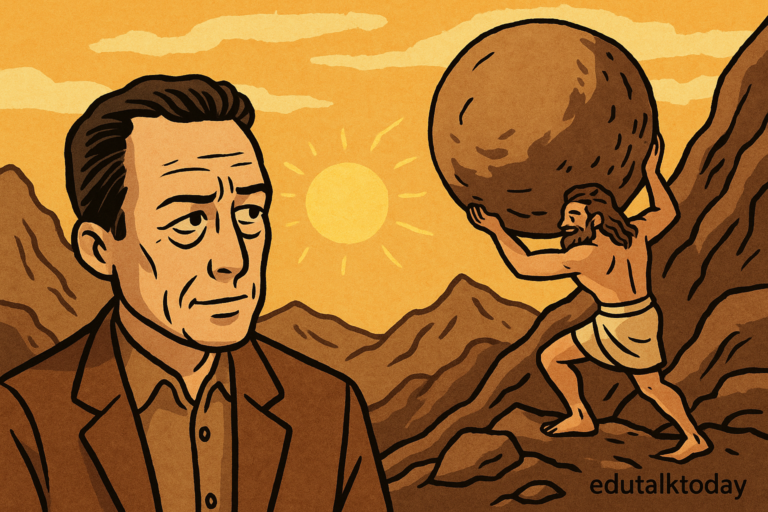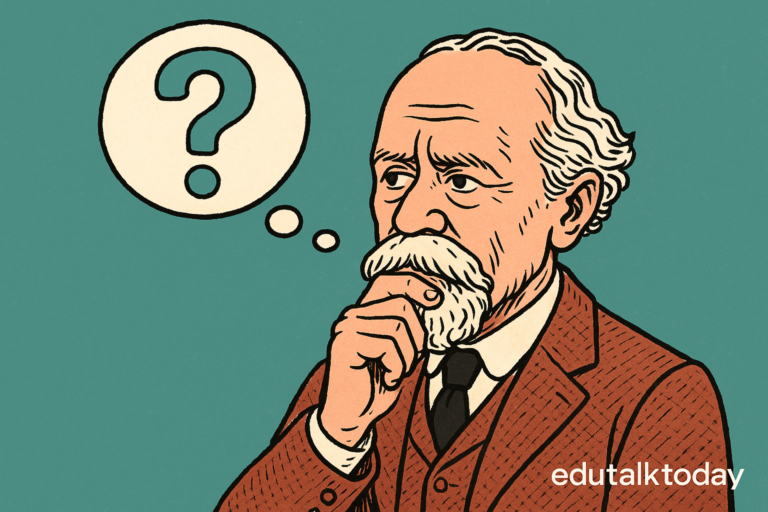Existentialism vs. Nihilism : A Guide for Beginners

Most discussions of nihilism vs. existentialism barely scratch the surface. They usually go something like: nihilism = “nothing matters,” and existentialism = “nothing matters, so make something matter.”
Sure, that’s a start.
But when you’ve been through Nietzsche, Sartre, Camus, and Heidegger more than once (and actually read de Beauvoir), you start realizing that this distinction deserves way more precision.
What I want to explore here is how existentialism doesn’t just respond to nihilism—it actually displaces it by shifting the question entirely. It’s not just about salvaging meaning from a meaningless cosmos.
It’s about showing that meaninglessness is the wrong problem to begin with.
This isn’t about optimism, either. I’m not here to say “yay, you can make your own meaning!”
I’m interested in how existentialist thought constructs a livable framework in a universe that promises us absolutely nothing. That difference matters.
What Kind of Nothing Are We Really Talking About?
The first mistake we tend to make—even those of us deep in the theory—is to treat “meaninglessness” like a flat concept. But the kind of “nothing” that nihilism offers isn’t the same as the “nothing” that existentialism starts from. It’s not just a semantic trick; it’s an ontological divide.
Nihilism’s Collapse: A Void That Stays Empty
Let’s start with nihilism. It claims that life has no inherent meaning, no absolute values, no cosmic purpose. That’s the classic definition. But more precisely, nihilism is a response to the failure of metaphysical systems—religious, moral, epistemological—that once guaranteed meaning. Nietzsche’s diagnosis in The Will to Power is instructive here: we’ve killed God, and with him, the whole Platonic-Christian apparatus that kept our values propped up.
The “void” that results from this collapse isn’t generative; it’s inert. Passive nihilism, in Nietzsche’s terms, is what happens when the absence of meaning leads to resignation, apathy, or despair. Think Dostoevsky’s Kirillov in The Possessed—willing suicide as a philosophical act because life without absolute meaning isn’t worth the bother.
But Nietzsche didn’t stop there. Active nihilism was his transitional stage—where the destruction of old values clears space for the revaluation of all values. But even then, that process is deeply unstable. It doesn’t provide meaning—it just clears the rubble.
Existentialism’s “Nothing” Isn’t Empty – It’s a Space of Freedom
Now compare that to existentialism’s nothingness. Sartre’s Being and Nothingness doesn’t just borrow the word—it radically retools it. For Sartre, “the nothing” isn’t the end of meaning—it’s the condition of freedom.
Because there’s no fixed essence, no prewritten human nature, we’re “condemned to be free.” What nihilism experiences as collapse, existentialism reframes as ontological openness.
Heidegger’s take is even more revealing.
In What Is Metaphysics?, he doesn’t say nothingness is absence—he says it’s the clearing in which Being itself is disclosed. Das Nichts isn’t a void—it’s a revelation.
It’s what makes questioning possible in the first place.
In other words, existentialism doesn’t simply cope with the absence of meaning. It shows that the expectation of inherent meaning is a metaphysical holdover we’d be better off letting go of.
Meaning isn’t something to discover—it’s something to enact.
This Isn’t Optimism—It’s Metaphysical Reorientation
Here’s where I think even experts sometimes slide into lazy readings. It’s tempting to call existentialism “hopeful nihilism” or a kind of stoic cheerfulness in the face of the void.
But that’s not it.
Existentialism doesn’t soften the blow of nihilism; it bypasses the framework entirely.
Take Simone de Beauvoir’s ethics in The Ethics of Ambiguity.
She doesn’t say we should be “hopeful” in a meaningless world. She says that our projects gain meaning through engagement, even though that meaning is always provisional and open to failure. That ambiguity isn’t a weakness—it’s what makes responsibility possible.
So when we talk about the “nothing” at the heart of existentialist thought, we’re not talking about a lifeless abyss. We’re talking about a structural lack that creates space for freedom, commitment, and creativity. It’s not comforting—but it’s a hell of a lot more than nihilism’s dead end.
How Existentialism Finds Something to Hold Onto (Even When Nothing’s There)
So if existentialism doesn’t offer “hope” in any traditional sense—no God, no transcendence, no fate, no afterlife—how does it keep from tipping into the abyss? The answer isn’t that it denies the abyss. It’s that it walks directly into it and decides to build there anyway.
Let’s unpack how existentialist thinkers manage to do this.
I’ll run through five key mechanisms that I think show existentialism isn’t just coping with meaninglessness—it’s generating a new kind of grounding from within that absence.
1. Radical Freedom Isn’t a Buzzword—It’s a Weight
We hear a lot about “radical freedom,” especially in Sartrean existentialism. But this isn’t some Instagrammable idea about “choosing your own path.” For Sartre, the absence of God and essence leaves us with a terrifying, exhilarating truth: we are nothing but what we make of ourselves.
In Being and Nothingness, Sartre writes that the human being is a “being who is not what it is and is what it is not.”
That sounds cryptic, but here’s the core idea: unlike a rock or a knife, we don’t have a pre-set identity. There’s a structural gap between who we are now and who we can become.
That gap is freedom—but it also means we can’t hide behind excuses, destiny, or “human nature.”
There’s something brutal in that. But also empowering. It’s freedom with teeth.
2. Commitment Creates Value (Even If It Can’t Guarantee It)
Simone de Beauvoir sharpens this in The Ethics of Ambiguity, where she insists that values don’t exist “out there”—they arise through action and commitment. She’s not offering a prescription for personal happiness; she’s offering an ethics.
Here’s the key move: we create meaning by treating our projects as valuable, not because they’re guaranteed to last or succeed, but because the act of willing itself has existential weight. To live authentically isn’t to feel good about your choices—it’s to own them fully.
So when de Beauvoir talks about freedom, she ties it to responsibility toward others. This is not nihilism wearing a social justice mask. It’s an acknowledgment that, since values don’t precede us, we’re the ones who bring them into the world—and we’d better take that seriously.
3. Authenticity Isn’t Just Being “True to Yourself”
This term gets thrown around too easily, but let’s pull it back into existentialism’s home turf. For Heidegger, authenticity isn’t a lifestyle choice—it’s ontological. It means facing up to your being-toward-death, recognizing your thrownness, and taking ownership of your finite existence.
Why does that matter?
Because it shifts how we think about time, responsibility, and care. The authentic life isn’t about maximizing experiences or feeling consistent with your values.
It’s about resoluteness in the face of contingency. It’s about being fully present in your existence, while knowing it’s bounded and precarious.
That kind of authenticity isn’t reassuring—it’s demanding. But it’s also where existentialist “hope” lives: not in what’s given, but in how we respond to the not-given.
4. Camus and the Revolt Without Illusions
Albert Camus is often lumped in with existentialists, even though he rejected the label. But his idea of “revolt” might be the clearest existential answer to nihilism.
In The Myth of Sisyphus, Camus says life is absurd—but that doesn’t mean we should surrender to it. Instead, he urges us to imagine Sisyphus happy.
That happiness doesn’t come from delusion. It comes from revolt: a persistent “no” to the absurd. “There is no fate that cannot be surmounted by scorn,” Camus writes. That’s not passive resistance. It’s active refusal to let absurdity silence us.
Revolt, for Camus, becomes a way of living with full awareness of the void. It’s not a solution—it’s a stance.
5. We Aren’t Alone in This – Intersubjectivity Matters
Finally, we have to talk about others. Existentialism isn’t just a solo affair. From Sartre’s “Hell is other people” to de Beauvoir’s insistence on reciprocity, intersubjectivity is where meaning often gets tested and built.
Meaning isn’t just something we create inside ourselves. It’s negotiated, recognized, and sometimes rejected by others. That can feel fragile, but it also means existentialism has an ethical dimension nihilism lacks. It requires us to care—not just for ourselves, but for the freedom of others too.
So no, existentialism doesn’t promise us safety or certainty. But it does offer something far more honest: a framework for living meaningfully, even when nothing’s guaranteed.
Why Existentialism Isn’t Just a Softer Nihilism
Let’s take on a popular—and I think deeply flawed—take: that existentialism is just “nihilism with better vibes.” You’ve heard this before. People say, “Sure, existentialism sounds deep, but isn’t it just nihilism in a trench coat, trying to act cool?”
No. It’s not. And let me tell you why that kind of reading actually misses the most radical move existentialism makes.
1. Nihilism Is a Stoppage. Existentialism Is a Beginning.
Nihilism says: there’s no meaning. Full stop. End of sentence.
Existentialism says: there’s no preexisting meaning—so the sentence is ours to write.
That’s a fundamentally different kind of engagement with reality. Nihilism leaves you in the rubble of collapsed systems. Existentialism starts in the rubble and asks what you’ll build. Not because you have to—there’s no external imperative—but because freedom demands it.
2. Existential Time Is Projective, Not Collapsed
Here’s a crucial technical point that often gets lost: existential temporality is future-oriented. Sartre, Heidegger, and even Kierkegaard understand the self not as a static “thing,” but as something that’s always becoming.
Heidegger’s Dasein, for instance, is defined by its being-toward-death. That means our actions and identities are always unfinished—always unfolding into the future. That’s wildly different from the nihilist position, where time is meaningless, goals are illusions, and everything collapses into entropy or despair.
Existentialism keeps time alive. Nihilism kills it.
3. Existentialism Carries an Ethical Imperative
This one matters: existentialism isn’t just metaphysical—it’s ethical. Once you realize there’s no predetermined moral order, you’re not off the hook. You’re on the hook—because now you have to act without excuses.
Sartre’s concept of “bad faith” is exactly about dodging that. When we act like we don’t have choices (because of culture, biology, class, whatever), we’re lying to ourselves. But that lie comes with consequences—because it means abdicating responsibility.
Nihilism doesn’t care what you do. Existentialism does. That makes it harder, yes—but also far more engaged with the world.
4. Hope Isn’t Sentimental—It’s Structural
I get the reluctance to call existentialism “hopeful.” But hope, in this context, isn’t optimism. It’s structure. It’s the orientation toward a future that’s not given, but possible.
Kierkegaard’s leap of faith, for example, isn’t about believing in God despite no proof—it’s about committing in the face of uncertainty. That’s not naïve. It’s courageous.
And that courage? It’s existential hope. Not because things will be okay, but because we choose to act as if our choices matter. That’s not soft. That’s existence with guts.
5. Existentialism Thinks Through the Aftermath
Finally, existentialism doesn’t just diagnose collapse. It thinks through what comes after. It gives us a philosophical toolkit for navigating breakdowns—personal, social, metaphysical.
That’s something nihilism can’t do. Because once you’ve negated everything, there’s nowhere to go. But existentialism lives in the tension: no guarantees, but endless responsibility. It’s harder, yes. But it’s alive.
Final Thoughts
Existentialism doesn’t hand us meaning. It asks us to risk making it—knowing it might not last, might not be recognized, might even fail. That’s not a diluted version of nihilism. It’s a different animal altogether.
Where nihilism retreats, existentialism steps forward. Not with answers, but with the courage to act in the absence of them. And maybe that’s the most radical thing it offers: the invitation to live without cosmic permission—and do it anyway.





